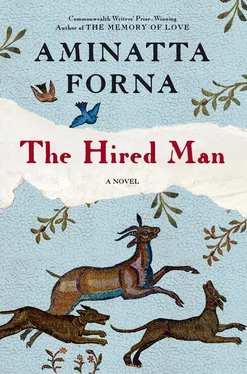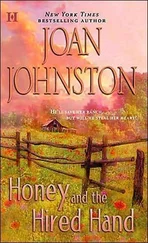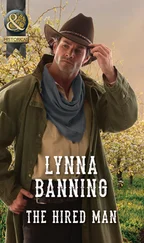That Sunday in August women were in the graveyard scrubbing the headstones and arranging flowers. I filled the vase I’d brought and went straight to Daniela and my father. Some mould had grown in the crevices of the lettering and I pulled a cloth from my pocket and worked on it until the inscription was as new. Dejan Kolak. 1.2.35 — 5.7.91. Daniela Kolak. 6.4.59 — 5.7.91 . My mother wanted more. Danica and I resisted. Now I don’t really remember why, but it had something to do with the excess, the excess of funerals and weeping, the excess of loss. Also my father, unlike almost everyone else in Gost, hated funerals: the deliberateness of the mourners and the prurience of the onlookers, the piety of the widows. Whenever he was asked what somebody had died of he’d reply (with immense gravity), ‘Lack of breath.’ But his favourite joke was this: ‘A woman goes to a fortune teller who tells her she will become a widow within the year. Her husband will die a violent death. The woman is shaken. She puts her hand on her heart, takes a deep breath and asks, “Will I be acquitted?” ’
We posted death notices on electricity poles and lamp posts throughout Gost and after we buried them went home and drank a bottle of Chivas Regal, brought by my father’s boss at the post office. In the corner of the room the television silently relayed a live football match from the other side of the world; mourners slid sideways glances at it. A near miss made one person shout out loud and stop to watch and soon he was joined by another man and then another: a silent vigil, not to death but to sport.
Nobody asked what my father had died of, denying Danica and me the opportunity to answer, ‘Lack of breath.’ People kept dying. In the year that followed funerals grew less and less lavish. My father would have approved.
On my way out I passed other graves of people I had known: a boy in my class who’d died of meningitis in 1970. The class accepted the fact of it with dry eyes; he’d not been especially popular: a habit of showing off his boils. The school janitor who electrocuted himself trying to fix the generator during a blackout. A friend of my father’s who drowned in a freezing pond (dead drunk, said my father). Old Pavić’s grave, where once a month many years ago Vinka Pavić, Krešimir and Anka would be seen laying flowers. Yellow carnations, orange stargazer lilies. Vinka Pavić’s choice: bright, practical and plastic. A pair of lolling sunflowers in a glass jar, daisy chains looped over the headstone, a bunch of wilted cornflowers — that meant that Anka had visited alone. She took to reading there, sitting on the grass with her back against her father’s tomb, sucking the end of her thumb, her nose in a book.
That year, the first and last year of my happiness, the summer months slid over us. Anka and I met often. No repeat of the fire in the woods, but sometimes I felt we were being watched. I did not speak of it to Anka. Whenever I passed Krešimir in the street he would stare at me hard but say nothing. In front of other people he behaved as though nothing had happened and sometimes I managed to persuade myself that we were all right with each other, then a day later we’d pass in the street and he’d give me the same unsmiling stare. After a while it ceased to matter: I told myself Krešimir couldn’t hurt me.
That year a drought visited Gost as I told you; if you’re old enough you might even remember it for yourself as all of us do; it began in April and stretched the summer by weeks at either end. The sky was a brilliant blue, the heat weighed heavily upon the town and people moved slowly. The deer came down from the hills in search of water. Anka and I claimed the swimming hole as our own. There the dry air of the ravine came scented with rosemary and fennel. On the riverbed trout and dace moved slowly around each other in an ever-shrinking space from which I took fish after fish with my bare hands. We’d cook them and eat with our fingers, pulling apart the charred skin and seared flesh, the crumbling bones. An afternoon as we sat by the swimming hole a snake, desperate to escape the heat of the scorching rocks on its underside, came down the hill and slithered up Anka’s back and down over her breast, at such a speed neither of us had time to react. We watched it enter the water and swim away, head held high above the surface: a small, dark question mark.
Anka likes to model things in clay, things she gives away or arranges on her dressing table: small coloured hearts, discs imprinted with the pattern left by a walnut shell, a button, or scored with the whorl of a snail’s shell, an open flower. Later she glues fittings on the back and makes them into brooches. One of the hearts she gives to me and I carry it in my pocket.
Anka’s hair smells of vinegar. She says it makes her hair shine. Anka’s hair is deep brown, the colour of good earth. I lift a hank of it and let it fall from my fingers, like dark water. She wears it in a pageboy and has a habit of blowing her fringe upwards when she’s too hot. She’s lying on her back with her arm raised writing my name upon the sky. That day she showed me a picture of her father when he was a young man, found in the dresser drawer. Old Pavić — who was at least fifteen years older than his wife — standing on a grassy lakeside wearing black swimming trunks, the remains of a picnic laid out on the grass just behind him. I know this place well, near Šibenik, where lakes rise, linked by rapids and waterfalls. Syndicates of workers from the city holiday there in lake-shore cabins, sit on deckchairs submerged in the water and fish, drink beer and gorge on liver sausage.
In the centre of one of the lakes, behind a screen of cypresses, lies an island monastery. The monks there keep an ancient copy of Aesop’s fables, which they show to visitors. Some years ago I went on a pilgrimage to see the monks’ book. I rowed myself over and wandered across the lawns. The monks were still there, they’d been protected from the madness by their circle of water, and, I suppose, by their vocation. I waited for a challenge; when none came I found the main door of the building. All was quiet: the time for prayer. A monk detailed to welcome visitors guided me to the library where the manuscript was stored. He put on a pair of white cotton gloves and one by one he turned the pages to reveal each illustration. The avaricious man and the envious man, each of whom prays to Jupiter for his heart’s desire. To punish them Jupiter agrees, only if the other receives double the gift. The avaricious man, dwarf-like and dressed in dark robes, asks for a room filled with gold, is grief-stricken when his enemy receives twice the amount. But the envious man, thin and long-nosed, has already been overcome by the sight of the first man gazing at his room of gold. So he asks to be made blind in one eye, that the other may be blinded in both. ‘There are people like that,’ I said to the monk. ‘God doesn’t punish them.’ He walked me down to where I had tied my hired boat and threw the line to me. As I rowed away, counting the oar strokes, I watched him disappear back through the cypress trees.
In the photograph old Pavić leans against a wooden drinks kiosk, flexing his muscles for the camera. His dark hair is oiled and parted in the middle, you can see the tracks of the comb. A handsome man. There’s something uncomfortable about looking at pictures of your parents at a time when they made each other happy. This is a photograph Anka and I should never have seen, because it tells of what Vinka had once seen in her husband and of which she doesn’t want to be reminded. No wonder she hid it away in a drawer. Theirs was an ordinarily unhappy marriage. Pavić had done well enough, but Vinka blamed him for her unhappiness. Once a beauty, she could have married any man she wanted, but she squandered her worth (as she saw it) on Pavić and then he died, leaving her a young widow in a town where widows are shuffling shadows. And because now money is short Vinka takes a job doing the books at the fertiliser factory. She has a diploma in accounting, talks of leaving for the city, to Split or Sarajevo, and she drinks. I have known drinkers, some of my father’s friends are drinkers. It is there in the carefulness of her movements, the sudden rages, the bruises on Anka’s upper arm.
Читать дальше












